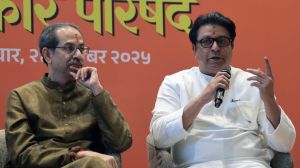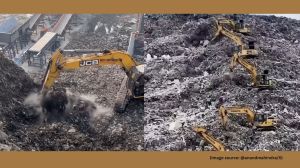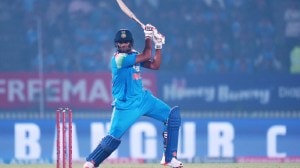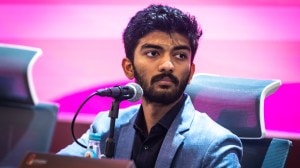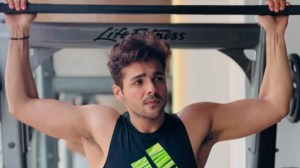Message in the machine
They greet you, deliver your orders, return change, and even thank you for shopping with them. Come rain or shine. And to top it all, they n...

They greet you, deliver your orders, return change, and even thank you for shopping with them. Come rain or shine. And to top it all, they never overcharge you or close the counter when your turn finally comes.
You have just dealt with a vending machine 8212; those marvels of engineering that make shopping a pleasure. And bringing the concept to India is 29-year-old Ammaar Huseini. A BE from India, a MS in manufacturing from Boston and a MBA from Harvard, his stint at Polyvend, USA 8212; one of the largest manufacturers of vending machines 8212; set Huseini8217;s coins clinking. And a year ago, he established Chevend Technologies to bring home these automated equivalents of counter salespeople. quot;India is getting ready for vending machines and it is important to get in now,quot; he says.
But, at the same time, he is not putting all his change into the vending machines. The arrangement, with the American manufacturers, is that he will only market the machines, till demand has risen enough to make local productionprofitable. quot;It will be a lost proposition to manufacture for a market that is still being born,quot; he explains.
And to make the concept popular, Huseini is displaying these machines at to let people try it out for themselves. quot;This will have a snowballing effect. If one machine attracts 10 customers, then two will bring maybe 100,quot; he says. Also, if required, an assistant will be around to help you through the instructions. quot;He is there for reinforcement and confidence building.
Indians need the personal touch,quot; adds Huseini. He believes that Indians instinctively distrust hi-tech automated gizmos, especially where money has to be put in. They want someone around whose neck can be wrung if the machine goes cranky and decides to keep the coins as well as the item.
But the machines he offers are the latest in the West. For example, the hot drinks machine 8212; with a capacity of 500 cups 8212; is not just a quot;water boiler like those tea-coffee machinesquot;. This one can vary proportions, brew, whip, grind tealeaves or coffee beans and even cleanse its innards at the press of a button. The cold drinks machine, with a capacity of 400 cans, is made of a strong polycarb which can withstand hammer blows 8212; ideal for outdoor, unmanned service. They come with fuzzy logic that is almost human. For example, the coin mechanism in a phone booth merely checks the weight and hence can be fooled8217; into accepting objects of similar weight and dimension. But here, instead of weight, the mechanism measures the diameter, thickness, conductivity, refractivity and other metallic properties to determine if the coin is genuine or not. And for cases where there are multiple coins of the same denomination, like in one rupee coins, the machine can be programmed to accept all the variants 8212; or if necessary, reject certain types. quot;If it is a bad or out of circulation coin, the machine will throw it out,quot; says Huseini.
Also Huseini insists vending machines are user friendly. Each product category has a spiral shaped row of its own.Listed above is the price and the code. You insert coins, the machine adds up and tells you how much money has been put in, then you press the correct code and the spiral turns to release the item. You can either press the coin return to collect the balance or insert more coins to buy something else. Mind you, if you put less money, the machine will warn you that you are shortchanging it! quot;It communicates with the customer,quot; says Huseini.
He unveiled these machines with Cadbury8217;s products during the India-Australia match at the Wankhade Stadium. quot;Sales which used to be around 1,000 bars, rose to 11,000,quot; he claims, adding that at an Irani restaurant in Bandra, Coca Cola can sales went up from four per day to 150 once the word got around that the machine was kept outside and could be used at night too. And there is no limit to what these machines can deliver. The one at Essar House dispenses samosas, sandwiches and idlis. But Huseini refutes that the interest is merely due to novelty value, and will soonrub off. quot;Novelty will become a habit. If 100 people have used it, at least 80 will come back,quot; he asserts. Vending machines capitalise on impulse buying. The hot drink machine, where the output is not visible, has sensuous curves and colors to attract the customer to it. But the snacks and products machines look more like a futuristic almarihs 8212; so that products dominate the machine. quot;What is seen is what is sold. If the machine is more attractive than what8217;s inside, then sales will dip,quot; says Huseini.
He has sold around 30 machine priced between Rs 2 to Rs 5 lakh to companies like HPCL, Cadbury8217;s, Essar, Jindal 8230; in fact, he is targetting quot;anyone from independent vendors to hospitals, amusement parks, petrol pumps8230;could be anyonequot;. And his plans are to enhance the sales spiel. His engineers are currently working on making the vending machines talk and sing. The machines may soon be able to suggest that you haven8217;t bought enough 8212; and need to buy, buy, buy. There is one thing they won8217;t be able to do8211; cancel your order. quot;Vending machines are built for human intelligence, not the lack of it,quot; protests Huseini.
- 01
- 02
- 03
- 04
- 05









